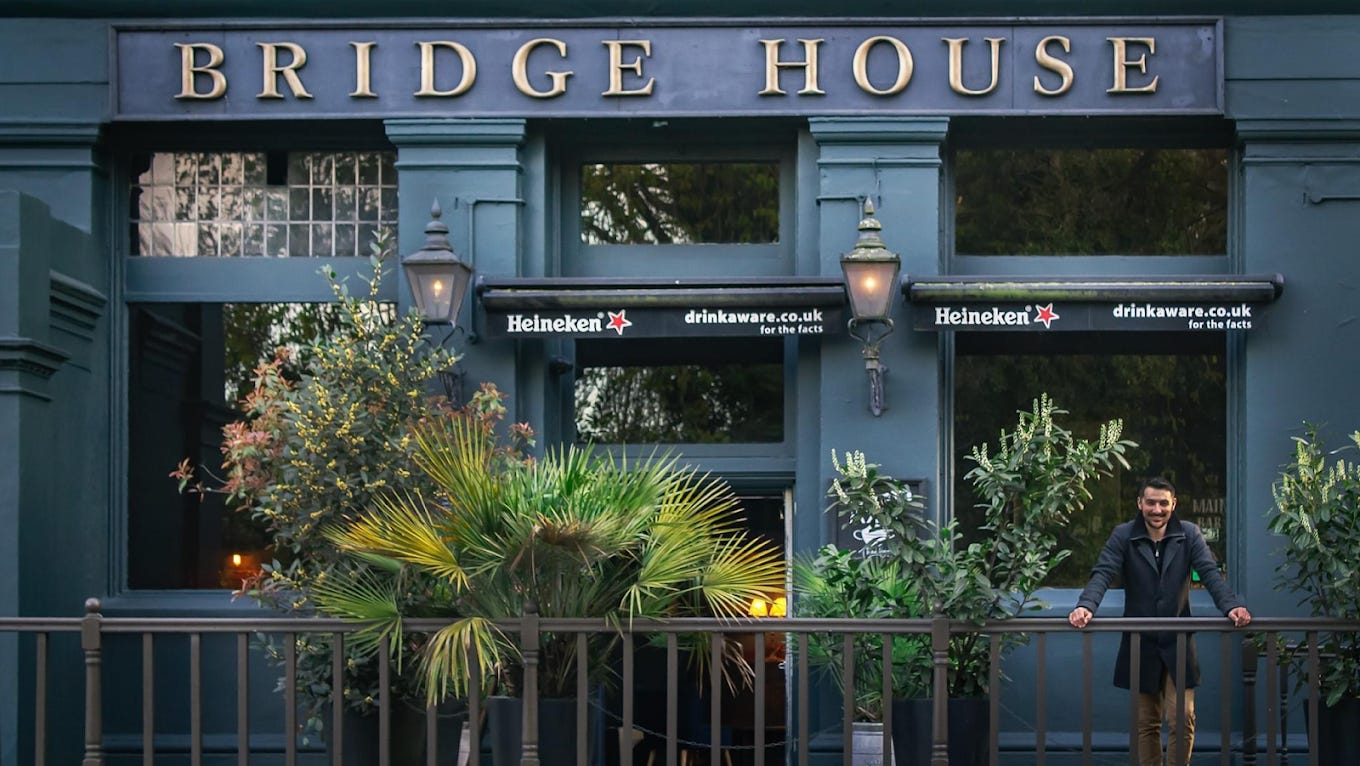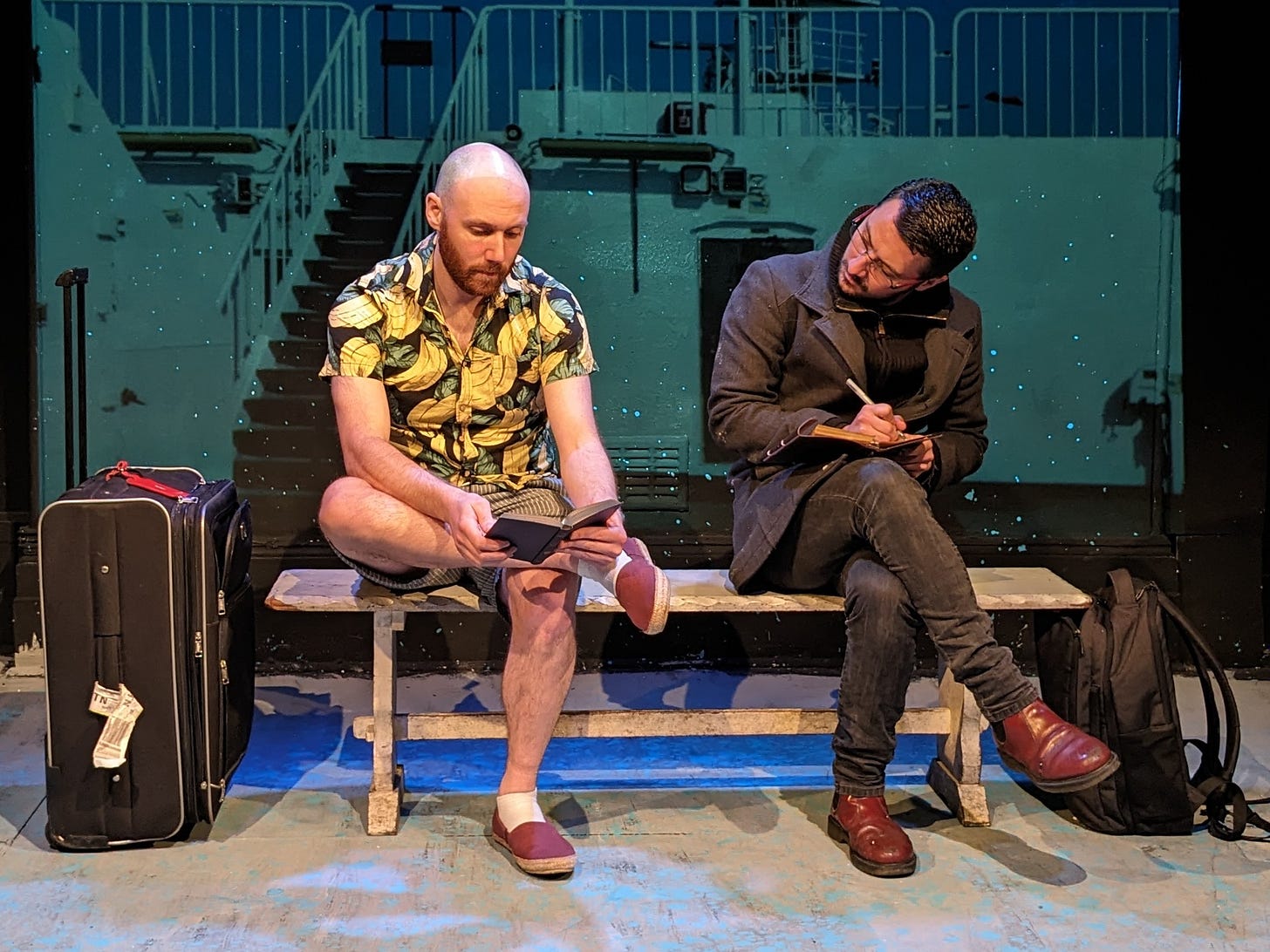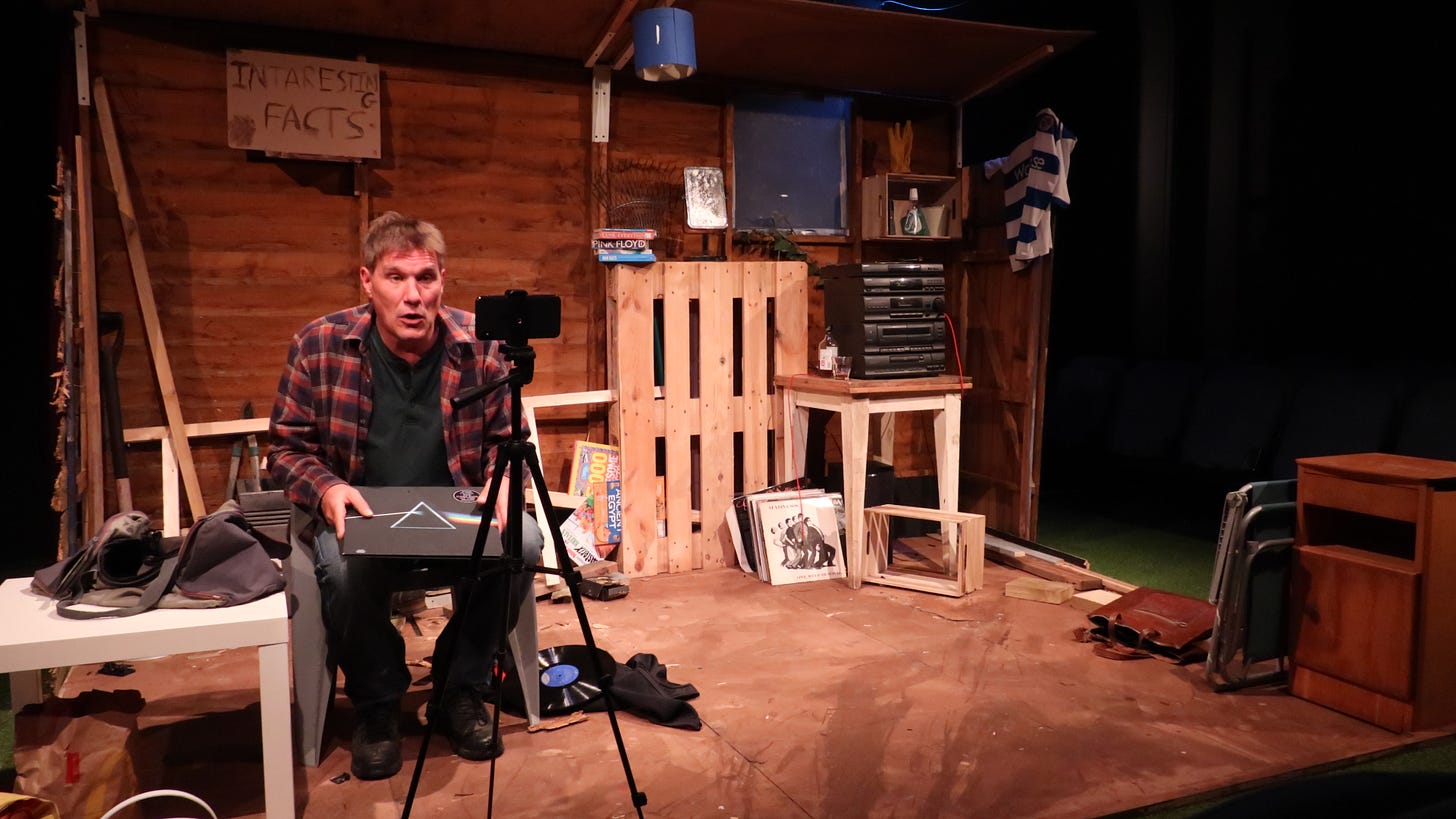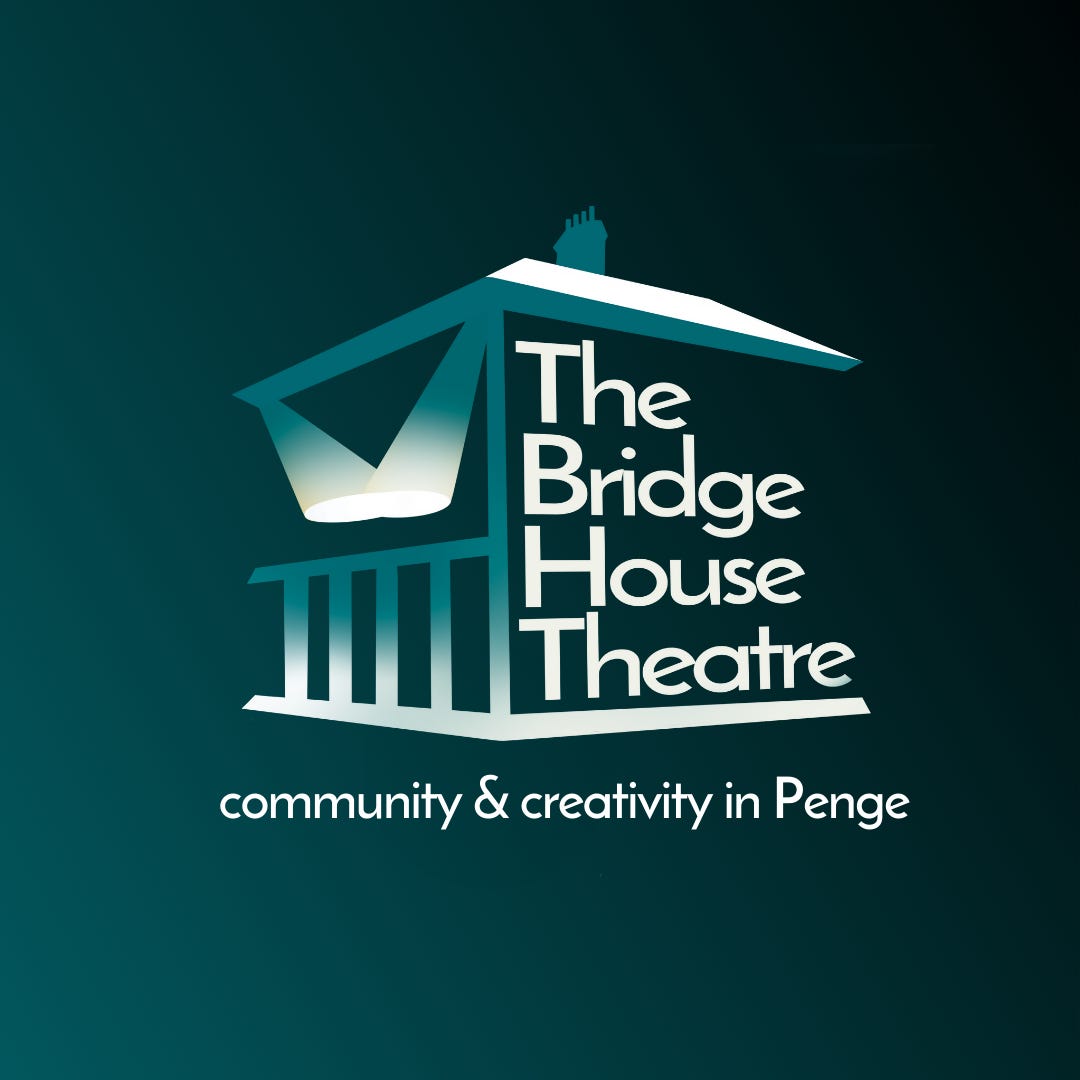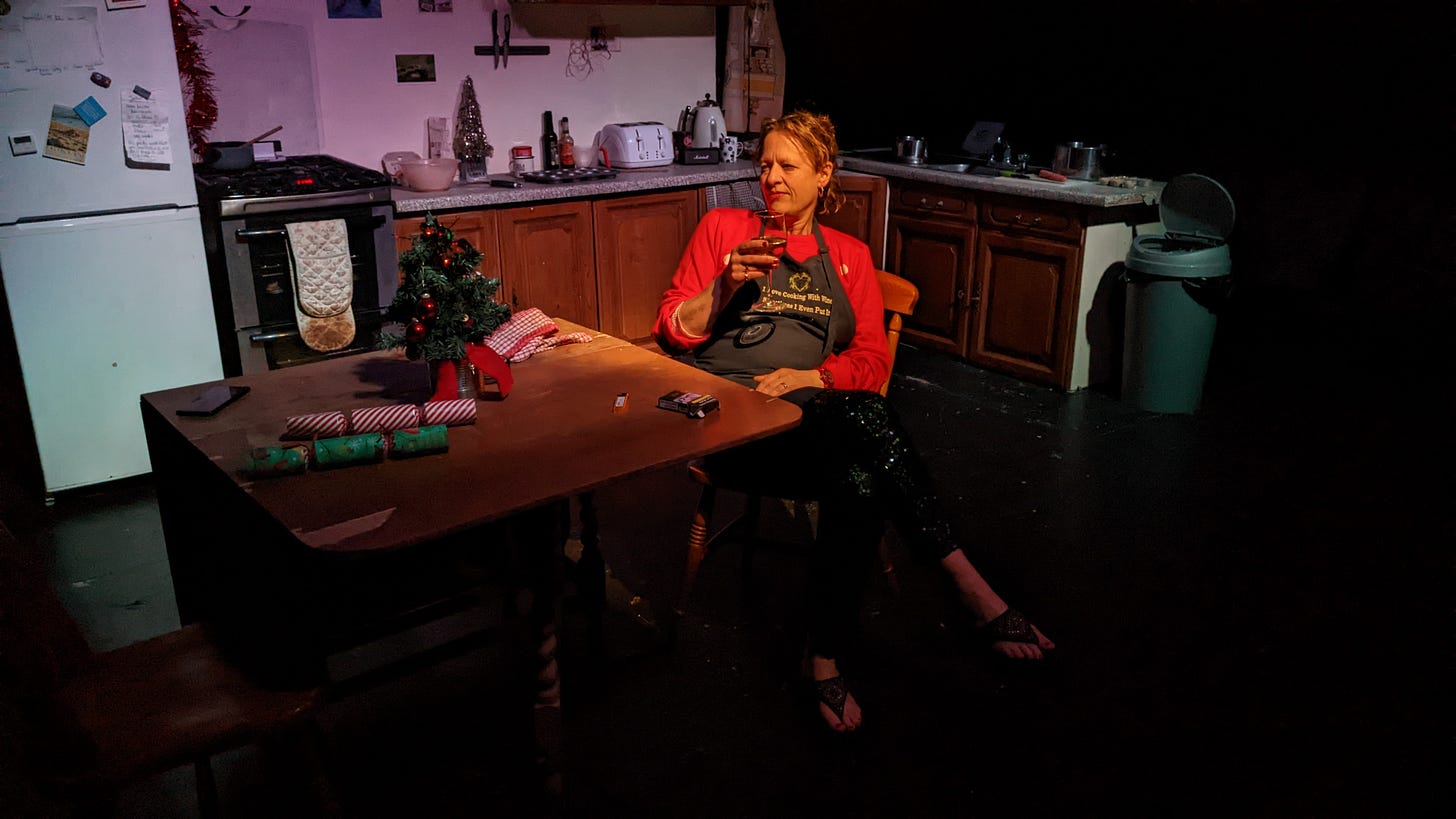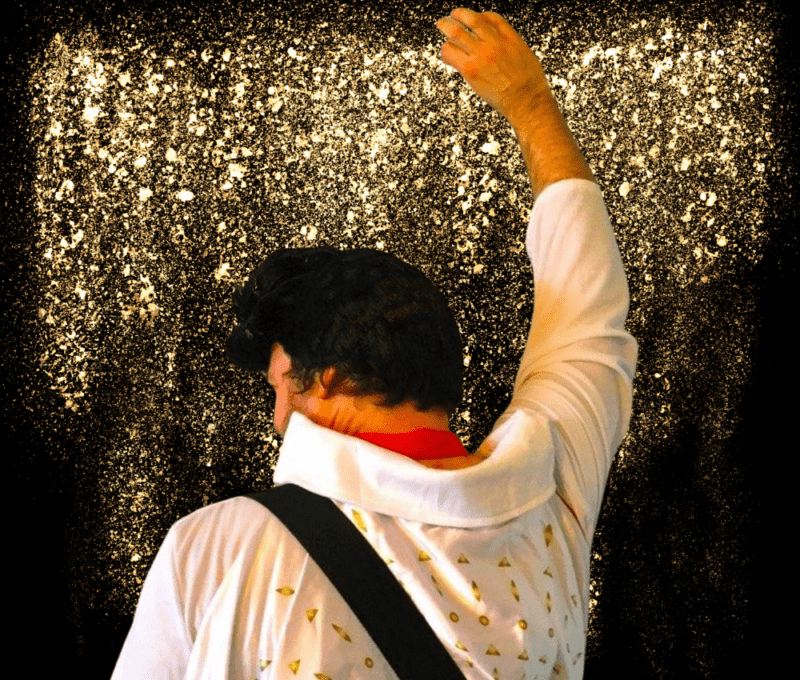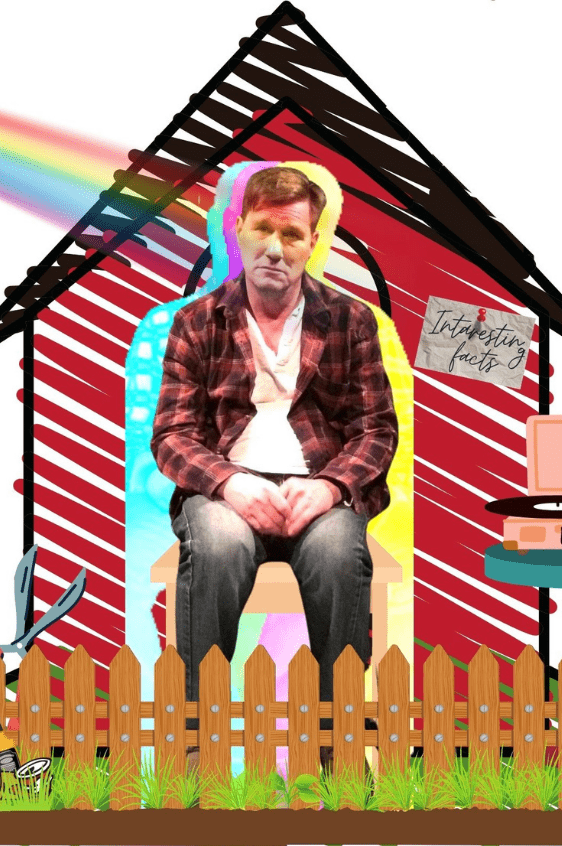Portraits Of Penge: The Bridge House Theatre
I moved to Penge a little shy of a year ago. I fell in love with it all; the people and places who made up this community. I wanted to learn more, and to document my time here.
Welcome to the second, belated, entry in the Portraits from Penge series. This month, I sat with Luke Adamson (Artistic Director) and Joseph Lindoe (Associate Director) of The Bridge House Theatre to discuss socially-conscious entertainment, losing £10,000 on a panto, and one man’s journey from “Luddite to lovie”.
“We’ve only been here since 2021,” said Luke, “but the space has existed since about 2014.” That space is The Bridge House Theatre; a black box theatre sat above The Bridge House pub in Penge, on the corner of Crystal Palace Park.
“A local theatre company used to use it a couple of times a year for their productions, but they moved on when COVID hit.”
As with my interview with Charlotte and Sam at Southey Brewing Co, COVID was impossible to avoid in my conversation with Luke and Joe; from how they got the space, to how it impacted their audiences and shows.
“I was on a lockdown Zoom meeting (remember those?),” said Luke, “about potentially doing some outdoor theatre in Crystal Palace Park. Three directors were on the call, and one of them, Guy Retallack, said that since he was no longer working out of The Bridge House, he’d have a lot more time to contribute.”
That was the spark Luke needed.
“I met with Scott and Sinon, who own the pub, and pulled together a proposal for what we wanted to do: to turn The Bridge House Theatre into a year-round off-West End fringe venue.”
Long Nights and Front of House
“We spent about five or six months fundraising and getting this place ready,” said Joe. “The old company took everything with them, and even pulled out the lighting bars to leave us with great big holes in the walls!”
With the goal set, and the space almost ready, it was time for The Bridge House Theatre to reannounce itself to our corner of South London.
“We had a “pre-launch” comedy festival in August of 2021” (of which the next was in July of this year), said Joe, “and then in September 2021 officially launched with a showcase.”
This showcase would encapsulate what Luke and Joe were about; breaking down barriers for creators and performers.
“Joe and I performed every single night in that showcase,” Luke said, smiling and with a hint of nostalgia in his voice, “and we were joined by three or four local performers every night, performing, well, anything.”
The thought of Joe and Luke, performers in their own right, getting up on stage every single night, even for a week, on the back of building and running the space, gave me second-hand exhaustion.
It wouldn’t stop there.
“For the first year, Luke and I were both here every single night,” said Joe. “It’s a full-time job on top of us both having full-time jobs.”
Luke agrees but points to a common theme: struggling to let go.
“We’ve tried to put in a bit more a structure which means this place doesn’t just run on a hope and a prayer. That said, I remember when we first paid someone to do front of house for us about a year ago, and we both sat at home feeling like we’d left the baby alone for the first time!”
“That was a tough night for us,” said Joe, “and I think what we’re trying to do is create a more sustainable approach to our work here. We don’t want to feel like we have to respond to every email that comes in straight away or feel like we have to constantly be checking ticket sales every 5 minutes on our phones. We want a structure in place that would allow us to travel for a tour if we needed, for example.”
That, in Joe’s words, is a “long long long long long way off.”
Socially Conscious Theatre & Mining Towns
There’s a love that flows out of both Joe and Luke that seems to permeate everything that they’re doing. A love for the people they work with, the shows they put on, and The Bridge House Theatre itself.
That love can be seen no more clearly than in what they call “socially conscious theatre.”
“Before we even had this space,” said Joe, “we’d produced theatre as a company, as a partnership, and it was part of our ethos. We’ve always said our work needs to be “socially conscious and entertaining.”
They’re both in agreement that work cannot simply be a political mouthpiece anymore, “because no one is interested in going to speaker’s corner these days.”
“So it has to be entertaining,” said Joe, “and be good quality theatre. It has to have a purpose. If that purpose is ‘entertaining people’ then that’s fine too, we have nothing against that, but we’re encouraging work that stays with you after you’ve walked away from the show.”
One way of doing that is hearing new voices and new perspectives, and The Bridge House Theatre has the following policy for submitting work:
“In line with our programming policy, all shows must be socially conscious and demonstrate how they provide opportunities for, or representation of underrepresented groups including, but not limited to:
Working class artists
Artists from the Global Majority
Non-binary or gender-fluid artists
LGBTQ+ Artists”
Luke is quick to point out that this “is by no means an exhaustive list, but it’s often so much harder for people in these groups to get into theatre.”
Coming from an ex-mining town in Yorkshire Luke is acutely aware of some of the challenges that people from working-class backgrounds in particular face when getting into the arts, and both he and Joe are insistent on using their platform to remove as many barriers as they can.
One such barrier is around tickets.
“It’s not only us trying to remove a barrier,” said Luke, “but also another example of what we mean by ‘socially conscious.’ If you’re struggling one month, if you’re a student or OAP, a single parent, or just having a tough time, you can pay less (£12) for a ticket to our shows. Conversely, if you’re doing well, you can pay more (£16) to allow us to offer more concessions to people!”
The elephant in the room here is that The Bridge House Theatre is unfunded, which means that they receive no money from public bodies to help fund their work or stabilise their business. “Ticket sales,” Luke succinctly puts it, “are our income.”
“Exactly,” said Joe. “Everything we do comes from ticket sales, and I think people respect that and don’t take the mick by paying less. That said, with the state of the economy now, people have genuine worries about their finances so we are seeing more people pay less for tickets, but we love that they’re still coming to support us in these difficult times.”
Audiences, Risk-Taking, and Gentrification
As we sit upstairs in the theatre, and I think about the places springing up in Penge, the conversation drifted toward what’s changed in the area since Luke arrived, and a hot-button topic; gentrification.
“Gentrification is a dirty word,” said Joe, “and understandably. It pushes out different groups, and it marginalises different groups of people. But at the same time, there's nothing wrong with things being nice, with investing in regeneration provided it supports existing communities. People are only going to want to shop locally and be part of a community if it is appealing.”
Luke, who’s been in the area since 2013, remembers when “[he] couldn’t get a cup of coffee on the [Crystal Palace] Triangle that wasn’t in a polystyrene cup,” but now the area is “phenomenal.” Their place within the conversation around gentrification isn’t lost on them, though.
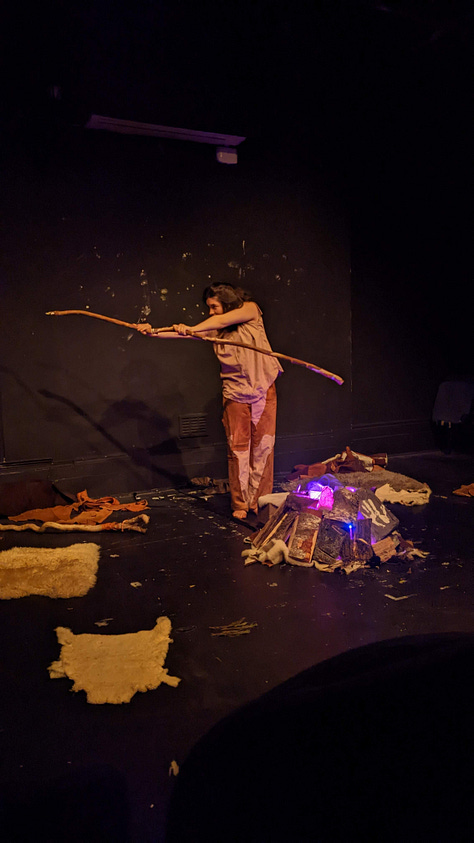
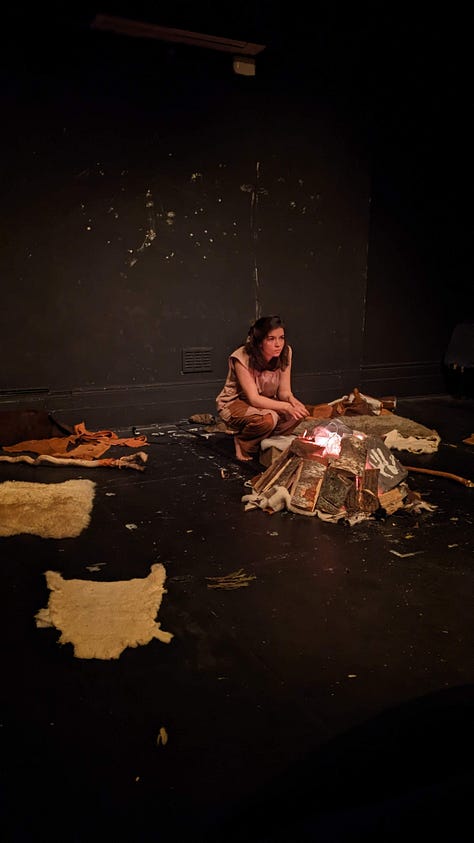
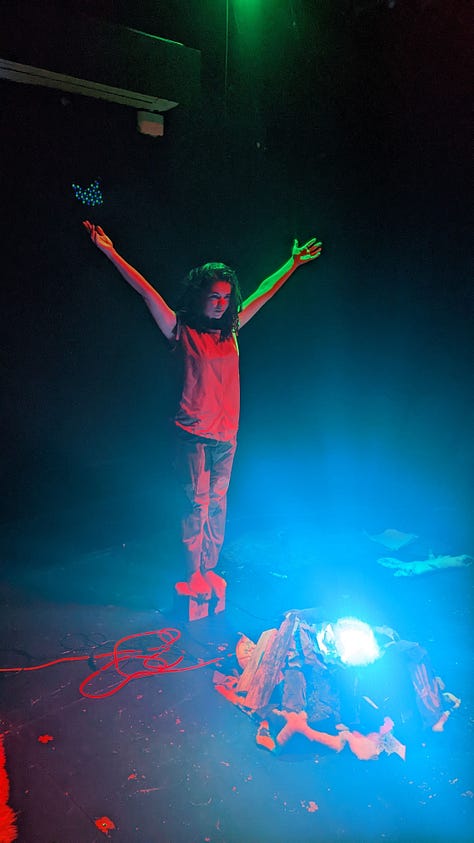
“We’re a small off-West End fringe venue above a pub; we know how that sounds,” said Joe. “It is very arty, and some people who aren’t familiar with us might view it as gentrified, but I truly believe we’re not. We’re low budget, we’re unfunded, we’re supporting marginalised communities and local creators, and our ticketing model is affordable and fair!”
“Not only that,” said Luke, “but we’re trying to encourage people from all walks of life to come. People can come here and get five-star entertainment for £12! In my mind that’s not gentrified, it’s just nice!”
And five-star entertainment it is, though programming their calendar isn’t without risk.
Luke clarifies that risk for me. “We weigh up what’s a piece of work that we really want to support that might not be particularly commercial, and then balance that out with something else that we think will sell well.”
It seems straightforward enough, but Joe points out that “the things that you think are going to sell well sometimes don’t, and something you think might be a hard sell often isn’t!” Nothing is more true of that than the pairs opening double bill of shows; up front was a “sort of physical feminist political theatre” that, Joe admits, they thought would be a struggle to sell.
It wasn’t, and small wins like that are cash in the bank. Then came one of their first big wins; The Bastard Sons of Catford Elvis, a rock and roll musical that sold out its entire run. Because the theatre is entirely funded by ticket sales, it means that these sell-out runs allow them to grow as a business, and support riskier work from new talent.
“We just had a beautiful piece on,” said Luke, “called Drowning. It was a very dark comedy/drama about mental health, suicide, grief and coming to terms with all of those emotions. It was so powerful, and the script was so well done, but we’d always feared it might struggle to attract people.”
It did struggle, but the shows, Joe points out, don’t exist in a vacuum. “The shows support one another financially, but not only that, we have such good relationships with anyone who’s performed here, and they still support us on social media all the time!”
Standout shows, hopes for the future, and Cas
You need only scroll through the Current or Past Shows sections on their website to see the astonishing volume of work that Joe and Luke help to put on. But is there anything that still resonates with them to this day?
“This is like choosing your favourite child,” said Luke. “In terms of visiting companies, I think In A Cave A Voice was probably the standout. It was a beautiful one-woman show set in pre-history and she was just in a cave, waiting for her family to come back. My God, it was just gorgeous.”
“I was so proud of The Man In The Shed,” said Joe. “It was a piece that someone submitted to us, and asked us to produce it! We didn’t have the budget to realise what he wanted to do, but he said he’d pay for it! He loved the quality of our work so much that he gave us the creative reins with his piece.”
The Man In The Shed remains a standout piece of work for The Bridge House Theatre, so much so that it came back for a second time earlier this year. Not only that, but it’s a great example, says Luke, “of the all-encompassing nature of the term ‘socially conscious'.”
The show is beautiful. A story of a middle-aged man struggling with change, who loves his family, but doesn’t know how to communicate, or even have the emotional intelligence to communicate about what he’s feeling.
“The piece was originally described to us as ‘anti-woke,’” said Joe, “but really it shines a spotlight on people who feel like they’re getting left behind in the modern world, and who can’t quite comprehend what’s happened, let along the speed with which change is happening.”
And change is happening, and it’s “creeping down the hill,” says Luke, from Crystal Palace Triangle. And yet Penge retains a bit of its identity. “I love that there are these businesses who have been here for years,” he says, “that are trusted by the local community, and that provide for the community.”
The Bridge House Theatre hopes to become one of those staples, providing great entertainment not just for the South London theatre scene, but also for the people of Penge.
As our time draws to a close they tell me one final story, about a man named Cas:
“Cas [who has since moved to the USA] was a regular in the pub when we started redoing the space,” said Luke. “He told us he was really glad someone was doing something with it, but that he ‘wouldn’t come, it’s not [his] thing’ but that he was still happy it was here.
“Then Mark Farrelly, [who Joe mentioned to me earlier that day], was doing a one-man show about the artist and filmmaker Derek Jarman, who Cas, it turned out, loved! He came to see the show and he fucking loved it. From then on he came to as much as he could.”
“He saw all of Mark’s other work,” said Joe, “all of our in-house shows, and then there was one show called Mouthful of Fingers from a visiting company. It was incredibly surreal, and he still came and still loved it! He thought it was one of the best shows we’d had!”
Luke smiles as he remembers Cas’s final few months before his flight. “He booked for every show, it didn’t matter who it was. BBC London did a piece on pub theatres and how they’re struggling and travelled around interviewing people, and came here and spoke to Cas. He said to them, in front of millions, ‘I was a philistine and now I’m a lovie!’”
I hope more people have the same energy as Cas and give The Bridge House Theatre’s incredible programming a chance.
You can learn more about The Bridge House Theatre, and their current and past shows on their website.
Their next season starts in September and features a piece based on the work of historic Penge poet, Walter De La Mare.
If you enjoyed this piece, please check out my interview with Southey Brewing Co, subscribe, share this piece, or drop me a comment suggesting a place I could speak to next.




